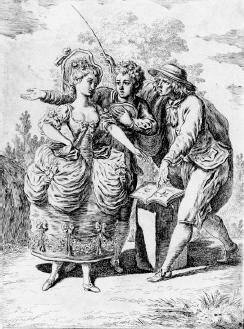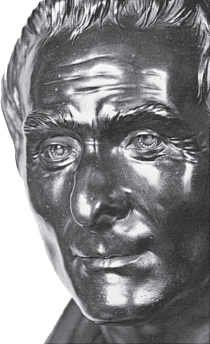Jean-Jacques Rousseau and Opera
Jean-
Rousseau viewed music as more “natural,” and therefore more basic and archaic, than speech. So he launched a great attack on the aristocratic music of the late Baroque era. This meant attacking opera, the most important, extended, and glamorous musical genre of the time. For Rousseau, the complicated plots of Baroque operas were as impossibly artificial as their complicated music. He demanded a kind of opera that would portray real people in actual life — simple people, close to nature, singing natural music.
In fact, short comic operas filling this prescription were already being developed in Italy, and Rousseau pounced on one that was playing in Paris. In G. B. Pergolesi’s La serva padrona (The Maid as Mistress, 1733), the music is lively and catchy, with no elaborate coloratura singing, rich harmonies, or exaggerated emotional outpourings. The plot is little more than one big joke. Rousseau not only praised this little piece to the skies but also wrote an opera of his own that was just as slight — and almost as popular.
Thanks to Pergolesi and Rousseau — and to Mozart — comic opera became the most progressive operatic form of the later part of the century. It dealt not with Roman emperors and their idealized noble sentiments, but with contemporary middle-

